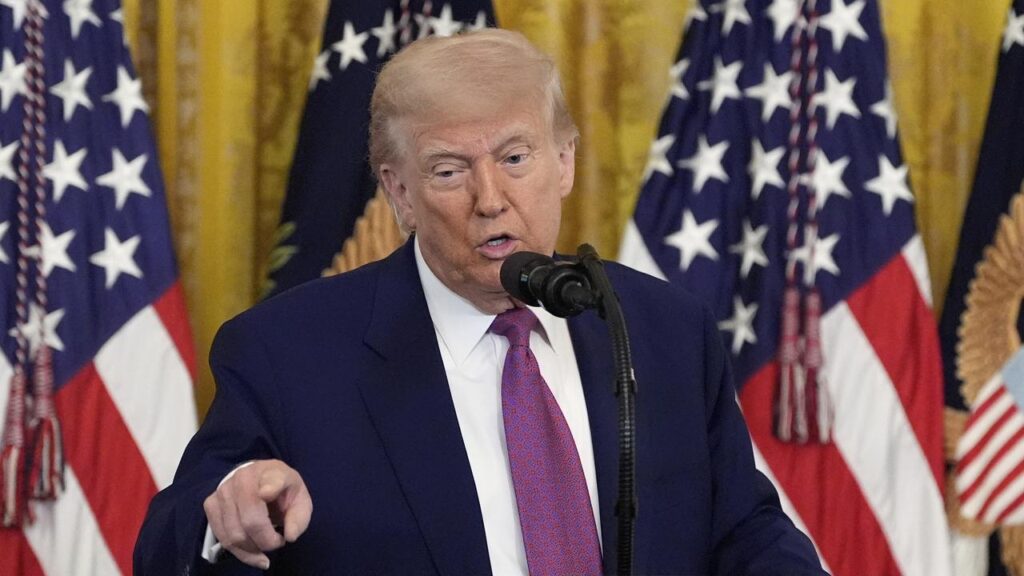Mideast war fears rise as Israel attacks Iran’s capital
Jon Gambrell and Josef Federman |

Israel has attacked Iran’s capital in strikes that targeted the country’s nuclear program and raised the potential for an all-out war between the two bitter Middle East adversaries.
The strikes early on Friday appeared to be the most significant attack Iran has faced since its 1980s war with Iraq.
Multiple sites around the country were hit, including Iran’s main nuclear enrichment facility, where black smoke could be seen rising into the air.

The leader of Iran’s paramilitary Revolutionary Guard, General Hossein Salami, was confirmed dead, Iranian state television reported, a development that would be a body blow to Tehran’s governing theocracy and an immediate escalation of the nations’ long-simmering conflict.
Top military officials and scientists were also believed killed.
The strikes came amid simmering tensions over Iran’s rapidly advancing nuclear program and appeared certain to trigger a reprisal, with Supreme Leader Ayatollah Ali Khamenei warning of “severe punishment” for Israel.
In Washington, the Trump administration, which had cautioned Israel against an attack during continued negotiations over Iran’s nuclear enrichment program, said it had not been involved and warned against any retaliation targeting US interests or personnel.
Israeli leaders cast the pre-emptive assault as a fight for the nation’s survival that was necessary to head off an imminent threat that Iran would build nuclear bombs, though it remains unclear how close the country is to achieving that or whether Iran had actually been planning a strike soon.
“It could be a year. It could be within a few months,” Prime Minister Benjamin Netanyahu said as he vowed to pursue the attack for as long as necessary to “remove this threat”.
“This is a clear and present danger to Israel’s very survival,” he said.
Khamenei issued a statement saying Israel “opened its wicked and blood-stained hand to a crime in our beloved country, revealing its malicious nature more than ever by striking residential centres”.
For Netanyahu, the operation distracts attention from Israel’s ongoing and increasingly unpopular war in Gaza, which is more than 20 months old.
Multiple sites in the Iranian capital were hit in the attack, which Netanyahu said targeted both nuclear and military sites.
Also targeted were officials leading Iran’s nuclear program and its ballistic missile arsenal.
The International Atomic Energy Agency confirmed that an Israeli strike hit Iran’s uranium enrichment facility at Natanz and said it was closely monitoring radiation levels.
The potential for an attack had been apparent for weeks as angst built over Iran’s nuclear program.
President Donald Trump on Thursday said he did not believe an attack was imminent but also acknowledged it “could very well happen”.
As tensions rose, the US pulled some diplomats from Iraq’s capital and offered voluntary evacuations for the families of US troops in the wider Middle East.
US Secretary of State Marco Rubio said Israel took “unilateral action against Iran” and that Israel advised the US that it believed the strikes were necessary for its self-defence.
“We are not involved in strikes against Iran, and our top priority is protecting American forces in the region,” Rubio said in a statement.
Trump is scheduled to attend a meeting of his National Security Council on Friday, were he is expected to discuss the conflict with top advisers.

Israel has long been determined to prevent Iran developing nuclear weapons, a concern laid bare on Thursday when the Board of Governors at the International Atomic Energy Agency for the first time in 20 years censured Iran over its refusal to work with its inspectors.
Iran immediately announced it would establish a third enrichment site in the country and swap out some centrifuges for more-advanced ones.
In a sign of the conflict’s implications, Israel’s main airport was closed and benchmark Brent crude spiked on news of the attack, rising nearly eight per cent.
Both Iran and Israel closed their airspace.
AP